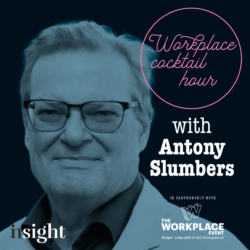February 20, 2024
Anger is not an energy in the workplace after all
 While a large body of previous research suggests that workers who express anger are judged to be competent and hold a high status—resulting in more power and money—a new study by Hebrew University of Jerusalem (HU) and Princeton University researchers debunks this consensus. In a new study published in Frontiers in Social Psychology, the researchers revisited these claims in U.S. experiments using similar methods as in previous work. In four preregistered, robust studies, the researchers revisited the paradigms that tested whether expressing anger could help a worker gain status in the workplace. Specifically, they asked: do workers gain status when they express anger? Is anger perceived to be a signal of competence? And at the most basic level: do others like anger in the workplace? (more…)
While a large body of previous research suggests that workers who express anger are judged to be competent and hold a high status—resulting in more power and money—a new study by Hebrew University of Jerusalem (HU) and Princeton University researchers debunks this consensus. In a new study published in Frontiers in Social Psychology, the researchers revisited these claims in U.S. experiments using similar methods as in previous work. In four preregistered, robust studies, the researchers revisited the paradigms that tested whether expressing anger could help a worker gain status in the workplace. Specifically, they asked: do workers gain status when they express anger? Is anger perceived to be a signal of competence? And at the most basic level: do others like anger in the workplace? (more…)






































